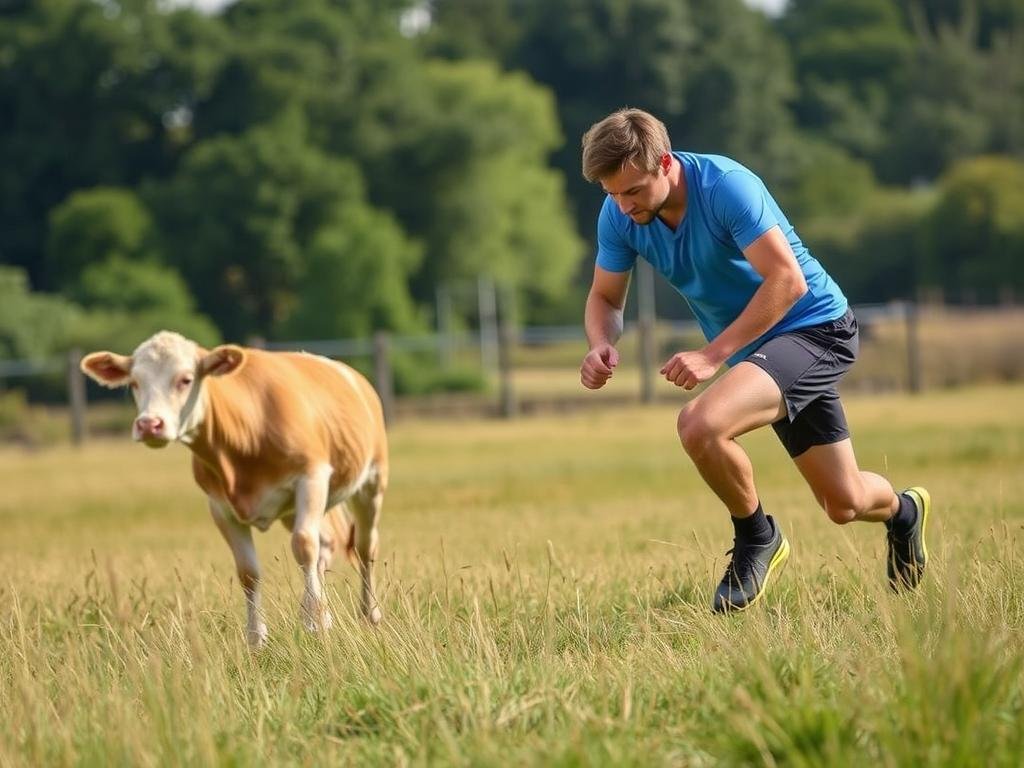Table of Contents
- What Exactly is Palm Kernel Expeller (PKE)?
- The Ultimate Benefits of Using PKE for Calves
- Potential Risks: Is PKE Good for Calves in All Situations?
- 5 Proven Best Practices for Feeding PKE for Calves
- What Age is Best for Introducing PKE for Calves?
- The Final Verdict: Is PKE Good for Calves?
- Your Trusted Source for Palm Products
Farmers are constantly seeking cost-effective ways to ensure their livestock receive the right nutrition for healthy growth. This often leads to questions about alternative feed supplements, a key one being: is it wise to use PKE for calves? While Palm Kernel Expeller (PKE) is a widely available and affordable feed option, its suitability for young, developing animals is a topic of much debate and requires careful consideration.
The short answer is that PKE can be a beneficial part of a calf’s diet, but only when used correctly. The quality of the PKE, the amount fed, the calf’s age, and what other feeds it’s combined with are all critical factors that determine its success. This guide will provide a complete overview of using PKE for calves, outlining the benefits, risks, and best practices for 2025 to ensure you make an informed decision.
What Exactly is Palm Kernel Expeller (PKE)?
Palm Kernel Expeller is a by-product of the palm oil industry, created after oil is extracted from the Palm Kernel. The process for creating Palm Kernel Oil and Crude Palm Oil leaves this fibrous, protein-rich material, which is then dried and sold as PKE.
Nutritionally, PKE is known for its high fibre and moderate protein content (typically 14-18%). It also contains a significant amount of residual fat, making it an energy-dense supplement. However, its nutritional profile can be inconsistent, which is one of the main challenges when considering it for sensitive animals like calves. It’s primarily produced in Southeast Asia, alongside other key commodities derived from the Oil Palm Fruit Bunch, and has become a common ingredient in livestock feed worldwide due to its competitive pricing.

The Ultimate Benefits of Using PKE for Calves
When used judiciously, incorporating PKE into a balanced diet can offer several advantages for raising healthy and robust calves.
Cost-Effective Nutrition
The most significant benefit of PKE is its affordability. Compared to other protein sources like soybean meal or fishmeal, PKE can substantially lower feed costs without completely sacrificing nutritional value. This makes feeding PKE for calves a more economically viable option for many farmers.
Good Source of Energy and Fibre
The residual palm oil in PKE provides a rich source of energy, which is vital for a calf’s growth and daily activity. Furthermore, its high fibre content is crucial for promoting the development of a healthy rumen, the main stomach compartment in cattle. A well-developed rumen is essential for efficiently digesting forage later in life. For more on this, Michigan State University Extension provides great resources on rumen development.
Potential Risks: Is PKE Good for Calves in All Situations?
The conversation around PKE for calves must include a serious discussion of its potential downsides. These risks are often linked to quality, quantity, and the calf’s developmental stage. The unique challenges of feeding PKE for calves demand a high level of quality control.

Variable Quality and Palatability
PKE quality can vary dramatically between suppliers. High-quality PKE should be golden brown with a nutty smell. Poor quality PKE may be dark, have a burnt smell, and contain excessive Palm Kernel Shell fragments, which have no nutritional value and can reduce palatability. Some calves simply refuse to eat PKE, especially if it’s introduced too quickly or is of low quality.
Nutritional Imbalances
While PKE provides protein, it is deficient in certain essential amino acids, particularly lysine and methionine, which are vital for muscle growth. Furthermore, PKE can be high in copper, which can become toxic if not balanced with other minerals like zinc and iron. According to DairyNZ, it is critical to manage these mineral aspects carefully when feeding PKE.
Contaminants and Mycotoxins
PKE sourced from humid climates is susceptible to mold growth, which can produce dangerous mycotoxins like aflatoxin. Aflatoxins are highly toxic to the liver and can suppress the immune system, making calves more vulnerable to disease. The FDA provides clear warnings about the dangers of mycotoxins in animal feed, highlighting the need for sourcing from reputable suppliers who test their products.
5 Proven Best Practices for Feeding PKE for Calves
To safely leverage the benefits of PKE for calves, follow these five proven best practices for 2025.
1. Introduce It Slowly and Gradually
Never switch to a PKE-inclusive diet overnight. Introduce it in small amounts (e.g., 100g per day) mixed with their regular feed. Gradually increase the proportion over one to two weeks. This allows the calf’s digestive system and palate to adapt, reducing the risk of feed refusal.
2. Prioritize High-Quality PKE
Always source your Palm Kernel Expeller from a reputable supplier who can provide an analysis of its nutritional content, including shell content and mycotoxin screening. Reject any batches that look or smell off. The small savings from a cheaper, lower-quality product are not worth the risk to your calves’ health.
3. Mix with Other Feeds for a Balanced Ration
PKE should never be the sole feed source. It must be part of a Total Mixed Ration (TMR) that balances its nutritional shortcomings. Combine it with high-quality forage, grains, and a protein source rich in lysine and methionine to ensure you are providing a complete diet for your livestock.
4. Adhere to Recommended Feeding Rates
Overfeeding PKE is a common mistake. For weaned calves, PKE should generally not exceed 20-30% of the total dry matter intake. A common guideline is to feed no more than 1% of the calf’s body weight in PKE per day. For example, a 150kg calf should receive a maximum of 1.5kg of PKE daily, mixed with other feeds. This is a crucial step for the successful use of PKE for calves.
5. Monitor Calf Health and Performance
Pay close attention to your calves’ health. Watch for signs of scouring (diarrhea), lethargy, or a rough coat. Regularly weigh them to ensure they are meeting growth targets. If you notice any negative effects after introducing PKE, reduce the amount or stop feeding it and consult a veterinarian or animal nutritionist. Research published in the Journal of Dairy Science frequently emphasizes the importance of monitoring growth rates in response to diet changes.
What Age is Best for Introducing PKE for Calves?
A crucial question for farmers is when to start using PKE for calves. PKE is not suitable for pre-ruminant calves (those still primarily on a milk-based diet). Their rumens are not yet developed enough to handle the high fibre content.
It is best to wait until calves are fully weaned and have a functioning rumen, typically when they are consuming significant amounts of solid feed and weigh at least 100-120kg. At this stage, their digestive system is robust enough to process the fibre in PKE effectively. Introducing PKE for calves before this stage can lead to digestive upset.
The Final Verdict: Is PKE Good for Calves?
So, is using PKE for calves a good strategy? The answer is a qualified yes. It can be a highly effective and economical feed supplement for weaned, growing calves, but it is not a “set and forget” solution. Its successful use depends entirely on a farmer’s commitment to quality, balance, and careful management.
By treating PKE as one component in a well-rounded diet, sourcing it carefully, and closely monitoring animal health, you can leverage its cost benefits without compromising the growth and well-being of your future herd. When in doubt, always work with a trusted veterinarian or nutritionist to formulate the best plan for your farm.
Your Trusted Source for Palm Products
Looking for High-Quality Palm Products?
Makmur Amanah Sejahtera provides high-quality palm products such as Palm Kernel Expeller, Palm Kernel Shell, Crude Palm Oil, Palm Kernel Oil, etc. Kindly contact us at WhatsApp +6282140002198 or email us at admin@makmuramanah.co.id.


